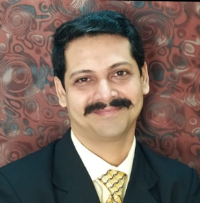ADVISORY ARTICLE
By Gaurang Vora
Director, Projects & Alliances
PMOGA India Hub
Mumbai, India
In the last article in this series, I enumerated the attributes leaders need to have in the future decade, which are Adaptability, Empathy and finally the Purpose. In this last and the final article, I wanted to share 3 shifts which a leader ought to have to be successful and also to make the team and organisation successful.
Let’s start with the Shift in Identity as in the past managers were recognised because they were depended upon for problem solving based on enhanced information gathering. This will get severely challenged as AI will give better and precise answers and leaders won’t be perceived as information gurus anymore. What will matter now is asking good & thought-provoking questions. Recently, I heard about a CEO who made executives on his team switch roles every few years; we all would be sceptical about how Sales Leader can be expected to run an engineering organization, or a chief financial officer can become a strong chief marketing officer. This is because as teams grow, leaders spend less time on the specific craft of their discipline. At higher levels of management, the job roles start to converge no matter background. Success in the role is linked to some key skills: hiring exceptional leaders, building independent organisations, establishing a transparent vision, and communicating well.
Second is Mindset shift – From the 50s to 90s it was an era of command and control, which is now largely moving towards self-run teams with servant leaders . At the end of the 1990s French and Raven identified 5 sources of power:
- Coercive – which was about penalising and rewarding people
- Legitimate – which is about hierarchy in organisation where authorisation flows down
- Referent – It’s about people whom we admire
- Expert – People having knowledge and expertise
- Informative – where leaders use to have information from their sources
The shift to self-managed teams orchestrated by a leader is well represented by a orchestra conductor, who would only direct the group of musicians but not tell them when to start and stop. The musicians themselves would collaborate and self-organise to create a great music experience.
More…
To read entire article, click here
How to cite this article: Vora, G. (2021). Leadership – Fulcrum Above & Beyond, Part 3, PM World Journal, Vol. XI, Issue I, January. Available online at https://pmworldlibrary.net/wp-content/uploads/2022/01/pmwj113-Jan2022-Vora-leadership-fulcrum-above-and-beyond-Part-3.pdf
About the Author

Gaurang Vora
Mumbai, India
![]()
Gaurang Vora is a knowledgeable Program Manager well-versed in providing strategic direction and ongoing leadership to teams, also proficient in building strong innovative teams delivering successful solutions. He is a veteran of project management with almost 2 decades of demonstrated track record of success playing a pivotal role in transforming through people, process and technology. Ready to apply expertise and experience to challenging new roles, he brings deep understanding of program/project management, delivery management, budgeting and revenue forecast.
Gaurang is a results-oriented leader with a strong track record of working in a BRIGHT (Blur, Risky, Interconnected, Global, Hi-tech, Timely) world with Thought Leadership, Ownership and Accountability. He was a Top 15 PMO influencer as part of PMO Global Awards 2020 and is Director – Projects & Alliances at PMOGA India Hub.
Gaurang has a Bachelor of Commerce degree and a Diploma in Business Management. He resides in Mumbai, India with his family and can be contacted at gaurang.vora@gmail.com









